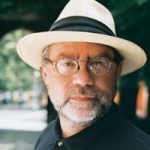“The International Law of Google”:
Digital Economy Companies and Transnational Legal Orders
Convened by Benedict Kingsbury and Joseph H.H. Weiler
This was a collective learning course, wiki-style, exploring law and international legal reconstruction partly from the standpoint of major companies and governments as well as advocates and institutions. The major aim is to think collectively about how law or law-like structures work in the internet era; to explore and generate ideas and agendas that engage creatively with cyberspace, massive electronic information, and the roles of digital economy companies; and to promote high-quality student scholarship with a view to publication as well as thoughtful reading of scholarly work.
Tuesday, 24 January 2017
Duncan Hollis, Temple University: Cybersecurity Norms and Practices
Paper: Constructing Norms for Global Cybersecurity (with Martha Finnemore), 110 American Journal of International Law 425 (2016). We will also discuss current cybersecurity issues.
Additional reading: Jack Goldsmith, Contrarian Thoughts on Russia and the Presidential Election (Lawfare, 10 Jan 2017).
Tuesday, 31 January 2017
James Grimmelmann, Cornell Tech and Cornell Law School: Offshore Data
Paper: Sealand, HavenCo, and the Rule of Law, 2012 University of Illinois Law Review 405.
The discussion with Professor Grimmelmann built from Part IV of the paper and focused also on more recent attempts to impose specific laws on Internet activity, to evade the application of laws to Internet activity, and to create alternative governance structures online. Specific examples included cryptocurrency governance, community self-governance, the ‘right to be forgotten’, the Apple v. FBI case, and fake news.
Background readings:
- Anarchy, Status Updates, and Utopia, 35 Pace Law Review 135 (2015).
- The Virtues of Moderation, 17 Yale Law Journal of Law and Technology 42 (2015).
Monday, 13 February 2017
Jorge Contreras, University of Utah College of Law and legal advisor to the Internet Engineering Task Force (IETF) joined us via Skype to discuss his recent paper: A Tale of Two Layers: Patents, Standardization, and the Internet. The TAO of the IETF can be found here. Scott Bradner explains its scope and purpose in this video.
Tuesday, 14 February 2017
The Colloquium watched and discussed excerpts from Werner Herzog‘s “Lo and Behold” about the history, practice, and future of the internet.
Tuesday, 28 February 2017
Jason Schultz, NYU Law: Information Platform Companies (Google, Facebook, Amazon) and the Internet of Things
Reading: Chapter 8 ‘The Internet of Things You Don’t Own’ of Jason Schultz’ recent book (co-authored with Aaron Perzanowski) ‘The End of Ownership‘.
Tuesday, 7 March 2017
Mark Wu, Harvard Law School: China Inc: Global Digital Business and Trade Law
Reading: The “China, Inc.” Challenge to Global Trade Governance, 57 Harvard International Law Journal 261 (2016).
During the session, Professor Wu also presented his current project, which examined possible paths forward in trade after TPP.
Background reading: Joshua Paul Meltzer, A New Digital Trade Agenda (E15 Initiative, August 2015).
Thursday, 23 March 2017
Vijaya Gadde, General Counsel of Twitter




